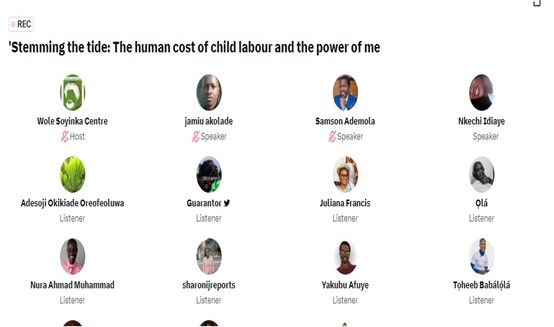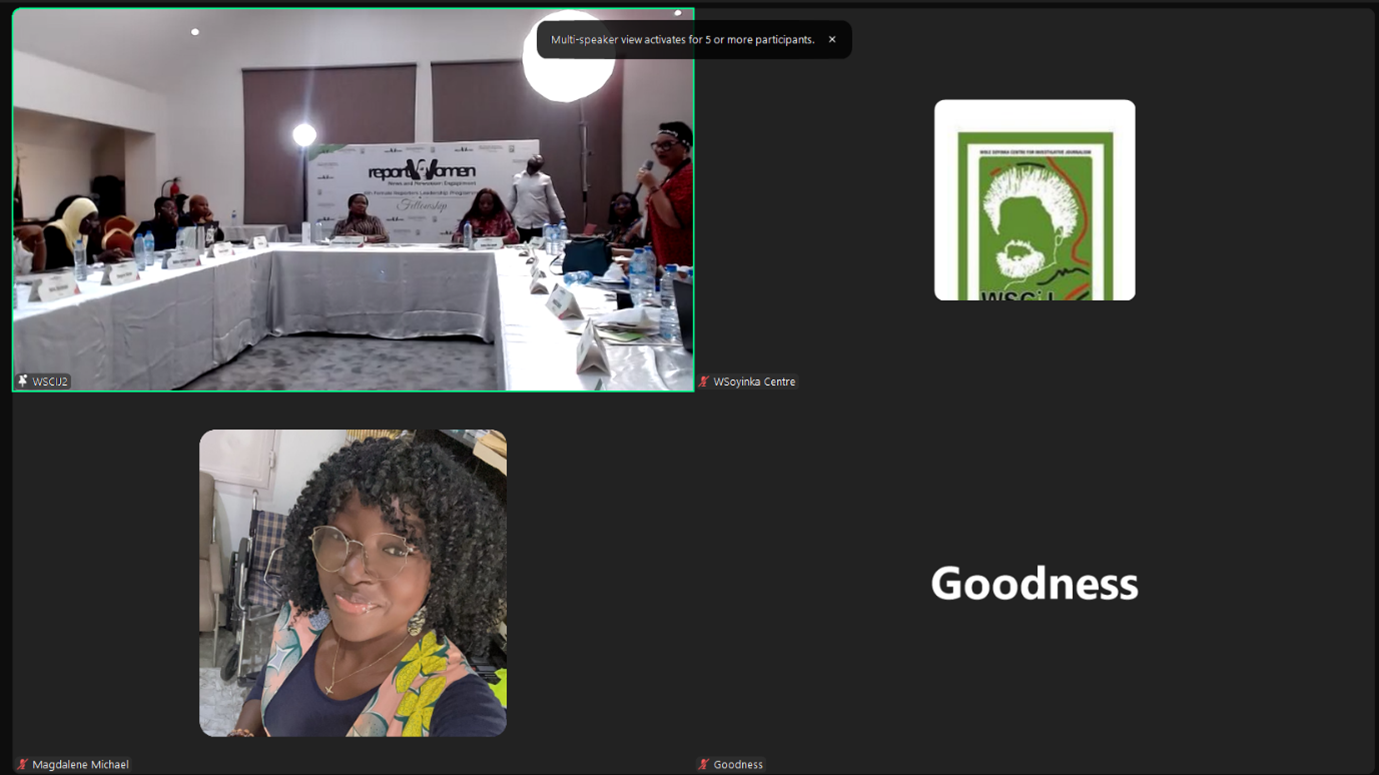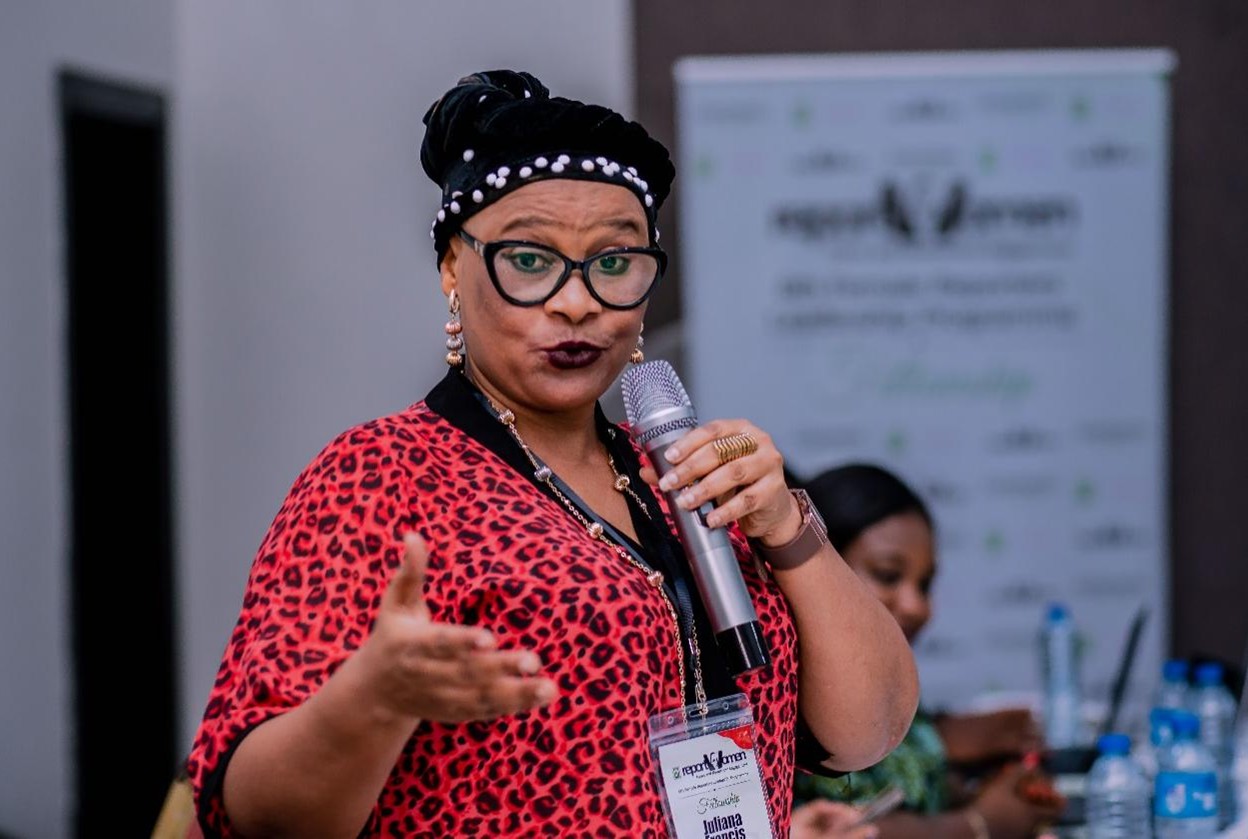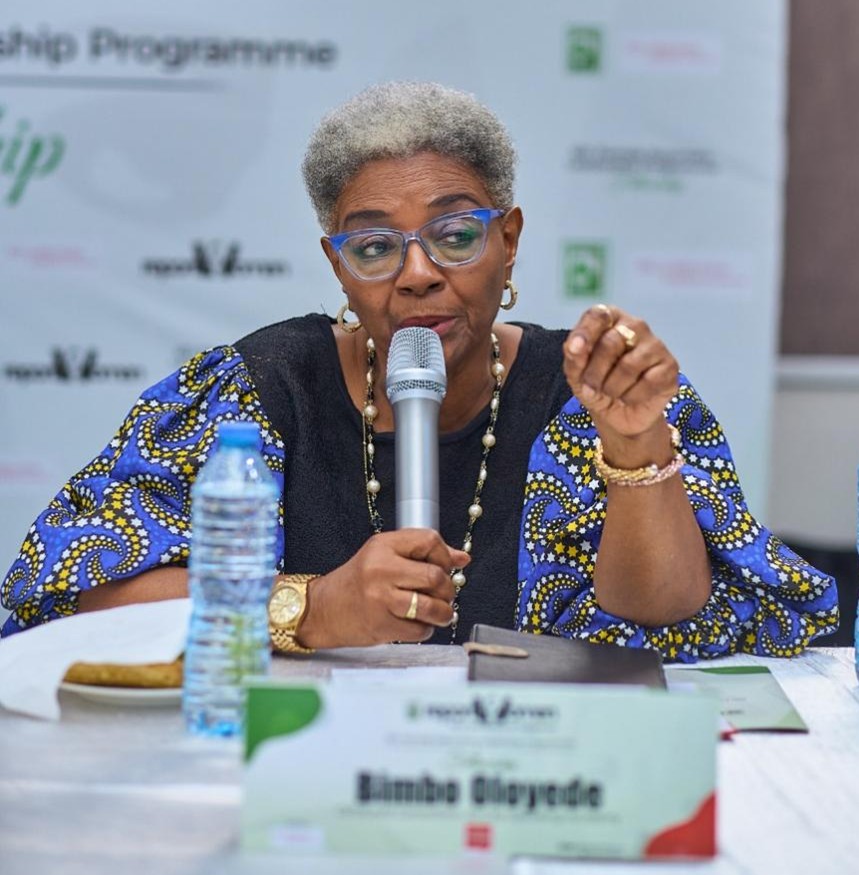During the 18 June Wole Soyinka Centre for Investigative Journalism (WSCIJ) Journalism & Society Conversations, experts attributed the problem of child labour in Nigeria to economic hardship, cultural traditions, and the misconception of child labour as a viable livelihood, stressing the need for better implementation and local engagement of child rights laws, continuous advocacy, public enlightenment, and storytelling to drive meaningful change. The session had Nura Ahmad Muhammad, Executive Director, Mufarka Youth Development Initiative; Sharon Ijasan, Senior Correspondent, TVCNews and Jamiu Akolade, Trustee and Administrator, Employment and Labour Lawyers Association of Nigeria (ELLAN) as panellists while Nkechi Macaulay, Controller of Programmes at Radio One 103.5 FM, Federal Radio Corporation of Nigeria moderated the event. Read more
Olaoluwa Adeleye, Programme Officer, WSCIJ, opened the conversation with a call to action, urging all stakeholders to recognise the sobering statistics from the Nigeria Child Labour Survey 2022 and take immediate steps to address the issue.
“These numbers are not just statistics. They represent real lives,” he said. Highlighting that 39.2 per cent of children aged 5 to 17 are involved in child labour, with over 14 million engaged in hazardous work, Adeleye called for a collective effort to change this narrative, stressing the importance of immediate and sustained action to protect and uphold children’s rights.
Speaking during the conversation, Muhammad highlighted the critical issue of adolescent girls’ vulnerability in Northern Nigeria. He pointed out that parents often inadvertently contribute to the problem by sending their children to hawk or work as housemaids in urban areas, viewing it as an economic necessity. He reported on the Mufarka Youth Development Initiative’s efforts to support vulnerable children through collaborations with the traditional media and social media mobilisation, emphasising the need for essential resources like shelter and food and the importance of community empowerment.
Ijasan shared insights from her experience as an education and labour reporter, noting that stories about education can significantly impact student welfare. Her research across Nigeria revealed that while some students achieve comprehensive education within Islamic schools, many others face obstacles due to inadequate funding and poor implementation of education laws. Ijasan underscored the crucial role of visual storytelling in raising awareness about these issues. She also noted the ethical challenges in reporting on child victims, stressing the importance of protecting their identities.
While speaking to the legal frameworks and policy advocacy necessary to stem the tide of child labour, Akolade cited the International Labour Organization’s 2021 report, which states that 160 million children globally are at risk of being out of school, trafficked, or forced into labour. He discussed the limitations caused by survivors’ and their families’ refusal to speak up, traditions and the fear of stigmatisation or isolation. Akolade criticised the inconsistent enforcement of child rights laws across Nigeria’s federal and state levels, pointing to significant gaps in implementing these laws.
Responding to questions about the impact of existing laws on child labour, Akolade explained that while Nigeria has enacted child rights laws, their implementation is hindered by regional differences and socio-economic challenges. He called for stronger local engagement and advocacy to overcome these barriers, stressing the need for a unified approach to law enforcement and child protection.
The conversation, moderated by Nkechi Macaulay, Controller of Programmes at Radio One 103.5 FM, Federal Radio Corporation of Nigeria, was part of the WSCIJ Journalism & Society Conversations. This platform facilitates online discussions about the role of the media in society, both nationally and globally, and examines the performance of journalists and the media within this context.








